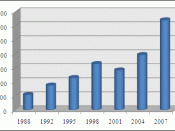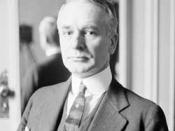The countries of China and Japan are key members of the dynamic international business community since each country significantly contributes to the global economy and to their own regional competitive environments. Each benefits from the theory of comparative advantage based upon their trading positions; both China and Japan have developed leadership roles in the foreign exchange market; each of these great nations continues to evolve their trade policies with vision and foresight, and over the last 20 years have significantly reduced their regional trade barriers in the face of strong domestic resistance; and finally both China and Japan have contributed and resolutely deployed themselves as integral to international financial organizations. China and Japan each contain natural resources and finished goods that could be traded with one another based on the theory of comparative advantage since "both countries will gain from trade even if one is more efficient in all goods" (Shenkar & Luo, 2004, p.
18). Each country is significantly entrenched in the foreign exchange market. The foreign exchange market is the "physical as well as institutional structures through which currencies are exchanged, exchange rates are determined, and foreign exchange transactions completed" (Daniels, Radebaugh, & Sullivan, 2004). Although trade specifically between China and Japan is somewhat restricted, both countries utilize the foreign exchange market to facilitate trade with the rest of the world. Understanding the relative strengths and weaknesses of Chinese and Japanese currency as a function of trade between each nation; and China and Japan's participation in global trade with other countries includes an interpretation of the foreign exchange market's role in influencing each countries strategic policy. Accordingly, governmental guidance has included subsidies, protection for favored industries (i.e., trade barriers), and restrictions on capital flows, policies generally opposed by the leading proponents of free trade. In many respects, the...



International Financial Organizations
nice essay about International Financial Organizations
0 out of 0 people found this comment useful.